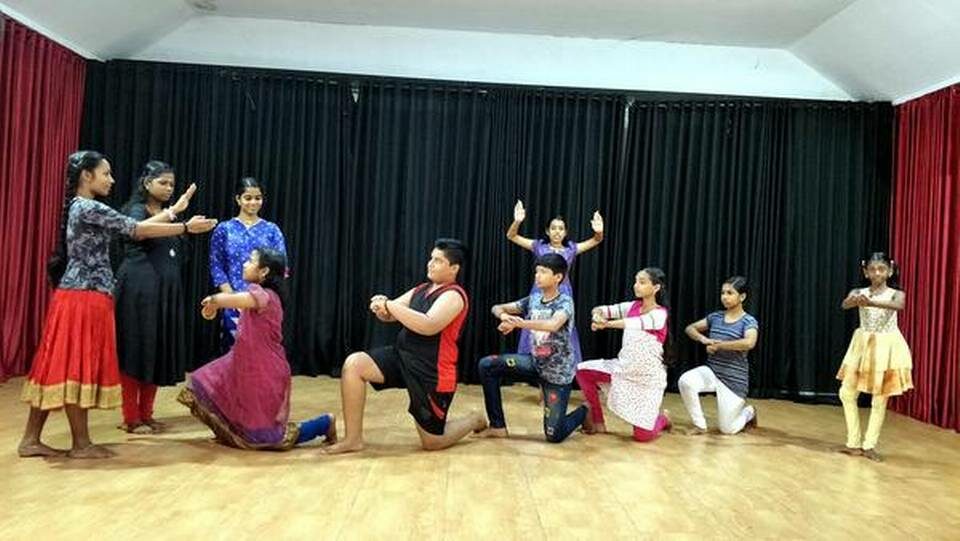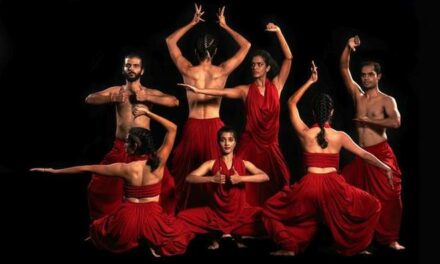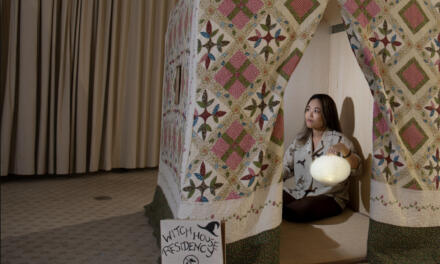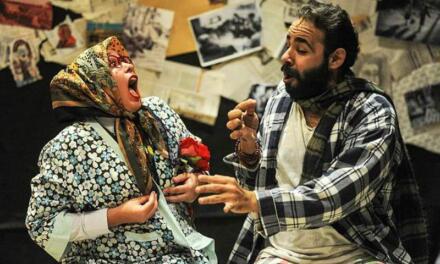For Athul Krishna, the summer vacation has been about polishing his acting skills. A budding actor, the class 10 student has been “living” the character of Ashwathama from the Mahabharata for over a week now. “It is not that easy…. Anger is his constant expression and so dialogues have to be delivered at the top of my voice,” says Athul.
He is among 50 children practicing at Suhruth Balabhavan of Suhruth Nataka Kalari, Vithura, where rehearsals are in full swing for a stage adaptation of the Mahabharata. Nine seasoned directors have been training 150 children at three venues — Suhruth Balabhavan, Bharat Bhavan, Thycaud, and Amritha Kairali Vidya Bhavan, Nedumangad, for the big day.
“The play, Kuttikalude Mahabharatham, will be a Vishu kaineettam for the city,” says R Sudhakaran, mentoring Suhruth Nataka Kalari since 1995. The group had staged the play at Napier Museum ground in 2001. “Compared to this production, the first one was done on a bigger scale. It also had nine directors. But the play was nine hours long and was staged over three days, with three-hour presentations daily, while this is a three-hour play with repeat shows,” says Sudhakaran.
The 18 ‘parvas’ or segments of the epic have been divided into nine episodes, each of 20-minute duration. It starts with the birth of Vyasa, the author of Mahabharata, and winds up with ‘Swargarohana parvam’ that deals with Yudhishtira’s ascent to the heaven.
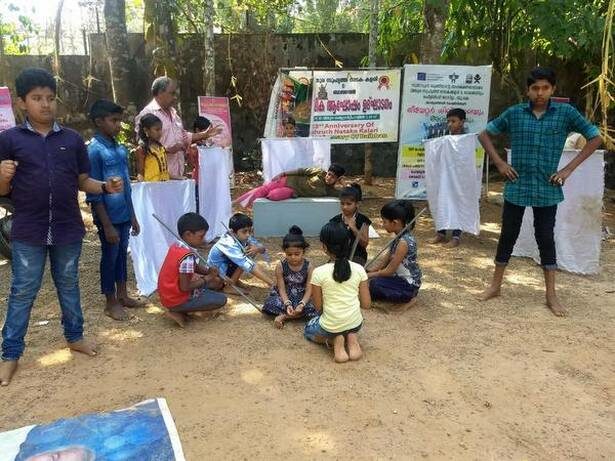
A rehearsal session of ‘Kuttikalude Mahabharatam’ at Suhruth Balabhavan, Vithura | Photo Credit: Special arrangement
According to Sudhakaran, the troupe decided to stage the play again to familiarise the new generation with the epic. “It is important for them to know about our culture and texts such as the Mahabharata that teach valuable lessons about life and death,” he adds.
While some of the children are regular students of the Balabhavan, the rest joined after calls for auditions were placed in newspapers. Workshops were held to select the actors. Sivasankar US, a senior student of Balabhavan, says, “I have been coming here for the last eight years. I act as King Virata in ‘Virataparvam’. I also get to help children with their dialogue delivery. Initially, it was difficult because many children were clueless about some episodes in the epic. But now they are full of enthusiasm,” he says.
What makes the production unique is the involvement of nine directors, Sudhakaran avers. Pramod Payyannur, director of ‘Adiparvam’, adds: “Each director has his own interpretation and understanding of the epic and so you can see nine different styles in the entire production. Our segment starts with the birth of Vyasa and follows the epic until the introduction of the Pandavas. I have tried to incorporate ethnic and tribal elements in the characters, their costumes, and setting. At the same time, we have kept the text simple since it is mainly meant for children.”
Harilal PS, meanwhile, has brought in contemporary elements to the episodes in ‘Mahasauptikaparvam’. Duryodhana, who is fatally injured by Bhima, exhorts Ashwathama, the new commander of the Kaurava army, to take revenge on the Pandavas. When Ashwathama witnesses an owl taking advantage of its night vision to attack a flock of crows, he uses the same strategy against the Pandavas. “They had killed his father through deception and so he believes that there is no place for fair play anymore. He goes on a rampage and attacks even an unborn child only to be cursed by Krishna at the end. He is a representative of those young men of today, who follow the law of retaliation. We want to throw light on the present scenario where laws are being broken, resulting in chaos,” says the director.
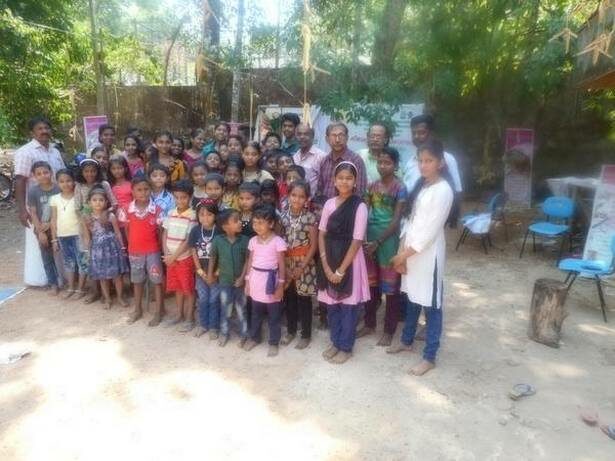
Children at the rehearsal camp of ‘Kuttikalude Mahabharatam’ at Suhruth Balabhavan, Vithura | Photo Credit: Athira M.
There is no written script for the episode, he says. “We give a skeletal framework of the situation and the children improvise. Our responsibility is to ensure that they get into the skin of the character with the right body language and dialogue delivery,” says Harilal. He had directed ‘Vanaparvam’ when the play was staged in 2001. “It feels good to be working with children again. Times have changed, so too our children,” he adds.
This article was originally published in The Hindu on April 11, 2019, and has been republished with permission.
This post was written by the author in their personal capacity.The opinions expressed in this article are the author’s own and do not reflect the view of The Theatre Times, their staff or collaborators.
This post was written by Athira M.
The views expressed here belong to the author and do not necessarily reflect our views and opinions.

